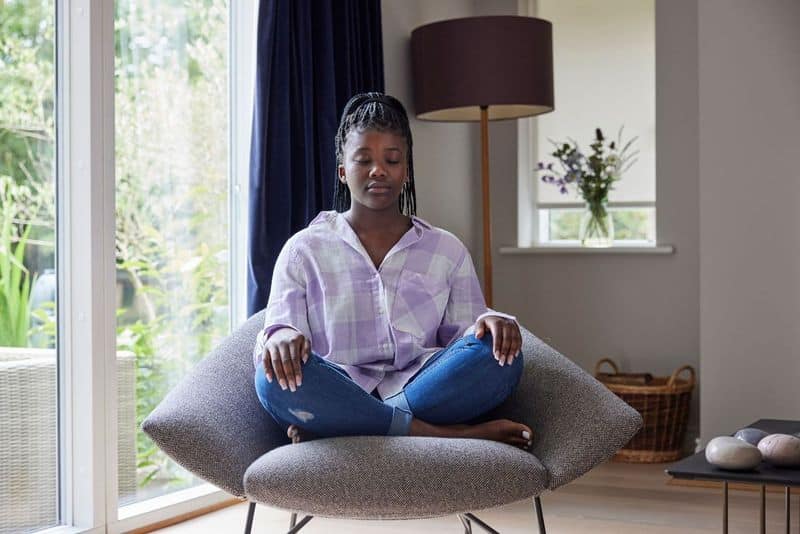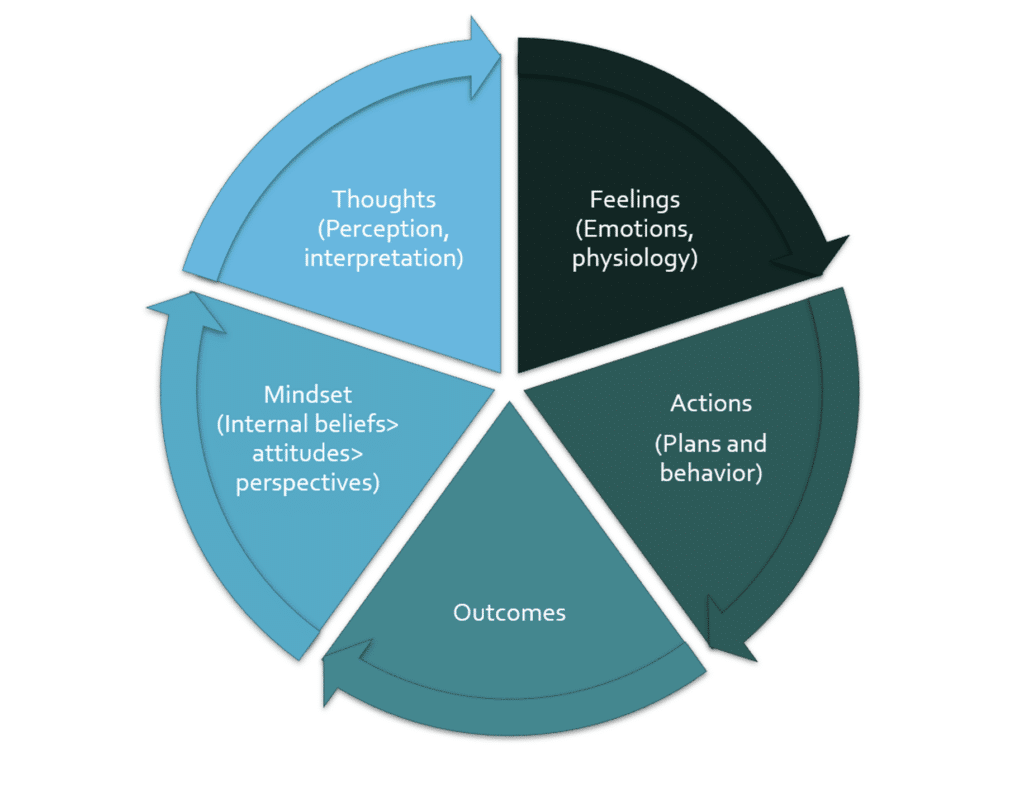
The mind-body connection refers to the relationship between the brain and the body – specifically, how mental and physical processes interact with each other.
A recent study at The Washington University School of Medicine discovered the physical links in the brain that enable the mind-body connection, called the Somato-Cognitive Action Network (SCAN). This finding speaks to the power of the mind on behavior. How we think about a thing influences how we perceive it, emotionally process it, and what behavior, if any, results from it.
The mind-body connection is reciprocal, as demonstrated by the graph below:

Mindset creates the internal context that influences how we think. It is comprised of beliefs, attitudes, and perspectives, and includes our views on ourselves, others, and the meaning we extract from the world around us. Mindset influences how we interpret or perceive information, experiences, and behavior. How we think about things influences how we feel about them (emotionally and physically), and the actions we do or don’t pursue as a result of those thoughts and feelings. Those reactions and responses lead to the outcome. The way we interpret these outcomes, paired with the external information we receive from our environment (people and places around us) continues to shape our internal mindset.
The level of power we have over our external environment varies, depending on age, access, and resources. However, once we are developed enough to recognize and influence the relationship between our internal and external worlds, we gain the agency to decide what we will keep with us or leave behind.
Coaches help clients become aware of the mind-body connection and the power of their own internal and external influences. Health coaching and wellness coaching both emphasize this awareness as a foundation for change. Coaches support clients as they choose and change who and how they want to be in the world.
The ethos and training at Youth Coaching Institute are founded on the concept of reciprocal potential, which was created by founder Dr. Leah Mazzola. It states that humans, by virtue of being social creatures in a shared world, inherently affect one another and their environment. The effects are both conscious and unconscious. Through coaching, we can learn to build and leverage our resources more intentionally to create conditions that promote quality of life, well-being, and performance.
Our primary function as a coach is to be able to notice when our client’s mindset or perspectives seem to inhibit the progress they want to make towards their goals. We support clients in the process of noticing their mindset and use open-ended questions and reflections to help them shift that mindset to be more affirming of and helpful to their values and goals.
According to the National Cancer Institute, a mind-body practice is a health practice that combines mental focus, controlled breathing, and body movements to help relax the body and mind. Mind-body practices assist in reducing pain, stress, anxiety, and depression, and they also improve overall mental health.
Examples include:
Coaches can share information with clients about these practices, and clients may choose to include developing mind-body practices as part of their overall wellness goals. For teen mental health, mindfulness-based programs can improve resilience, emotional regulation, and social skills.
Coaching itself is a mindful activity. Coaches use mindful listening to be attentive to the client’s process and mindful attention to withhold judgment, serving as an objective observer. By modeling mindfulness and supporting stress management, coaches indirectly teach clients to build self-awareness that contributes to growth, performance, and long-term well-being.
Are you interested in becoming a health coach? Do you want to expand your wellness coaching practice and help clients build resilience through the mind-body connection, mindset work, mindfulness, and healthy lifestyle habits? Check out our latest trainings in lifestyle medicine and health coaching here.